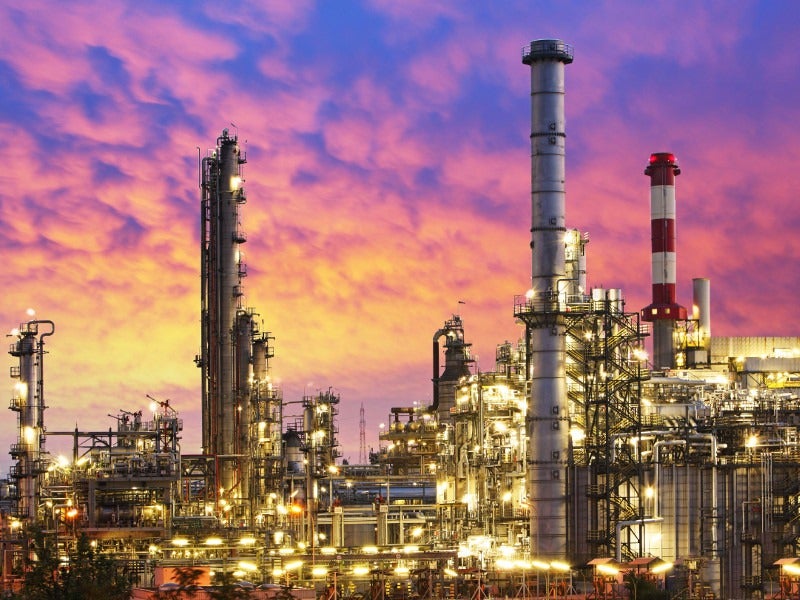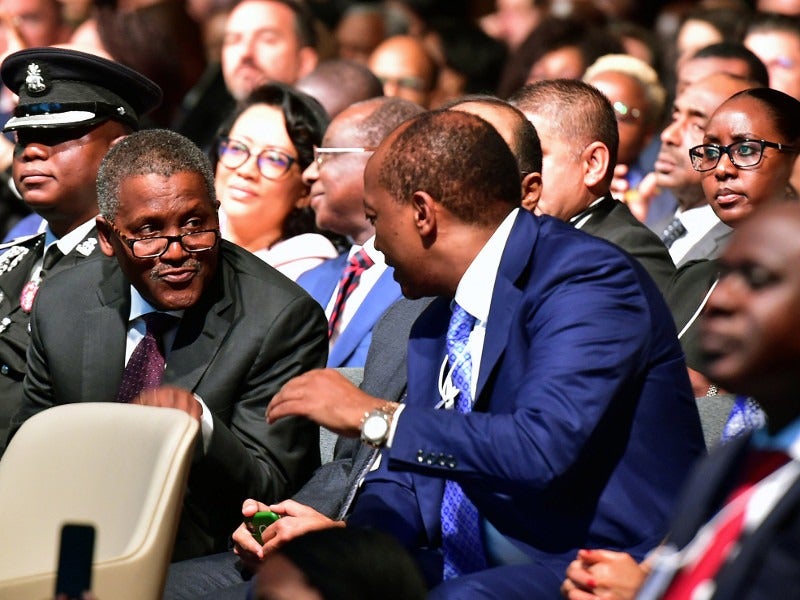Dangote refinery is a 650,000 barrels per day (bpd) integrated refinery and petrochemical project under construction in the Lekki Free Zone near Lagos, Nigeria. It is expected to be Africa’s biggest oil refinery and the world’s biggest single-train facility, upon completion in 2022.
The refinery will process a variety of light and medium grades of crude to produce Euro-V quality clean fuels including gasoline and diesel as well as jet fuel and polypropylene.
Dangote Oil Refinery, a company owned by the Nigeria-based Dangote Group, is developing the project with an estimated investment of $19bn. Nigeria’s Federal Executive Council (FEC) approved the acquisition of 20% minority stake in the project by state-owned Nigerian National Petroleum Corporation (NNPC) for $2.76bn in August 2021.
The integrated refinery and petrochemical project is expected to generate 9,500 direct and 25,000 indirect jobs.
Dangote refinery’s significance for Nigeria
Estimated to hold 37 billion barrels of proven oil reserves, Nigeria is the second biggest oil-rich country in Africa, after Libya.
Nigeria is, however, dependent on imported refined fuel products due to lack of domestic refining capacity.
The Dangote refinery will double Nigeria’s refining capacity and help meet the increasing domestic fuel demand, while generating foreign exchange through exports.
Dangote oil refinery location and site details
The refinery complex is being developed on a 2,635ha site on the Lekki Free Zone near the Lekki Lagoon, along the coast of Atlantic Ocean.
The geographical location of the refinery is ideal for easy transhipment of the refined petroleum products to international markets.
Dangote built a jetty near the project site to receive heavy equipment for the construction.
Dangote oil refinery design details
The Dangote oil refinery is designed to produce up to 50 million litres of gasoline and 15 million litres of diesel a day.
The processing facilities at the refinery include a crude distillation unit (CDU) and associated facilities, a mild hydrocracking (MHC) unit, a residual fluid catalytic cracking (RFCC) unit, a naphtha hydrotreater, and a gasoline hydrodesulfurisation (HDS) unit as well as alkylation units.
The refinery complex will also house sulphur recovery and hydrogen generation facilities and a polypropylene unit. Comprising two steam methane reformer (SMR) units, the hydrogen generation facility will generate 200,000Nm³/h of hydrogen and steam to produce sulphur-free fuels.
Other processing units include the STRATCO® alkylation unit, the MECS® sulphuric acid regeneration (SAR) unit, the MECS® DynaWave® sulphur recovery unit, and the BELCO® EDV® fluid catalytic cracking unit.
Production
The Dangote refinery is expected to produce 10.4 million tonnes (Mt) of gasoline, 4.6Mt of diesel, and 4Mt of jet fuel a year.
It will also produce 0.69Mt of polypropylene, 0.24Mt of propane, 32,000t of Sulphur, and 0.5Mt of carbon black feed a year.
Infrastructure facilities
The infrastructure facilities include a pipeline system, access roads, tank storage facilities, and crude and product-handling facilities.
A marine terminal, including a breakwater, jetty and harbour, has also been developed as part of the project.
Other facilities developed to support the project include an administrative building, guardhouses, fire station, and pump stations.
Furthermore, the refinery complex will house a fertiliser plant, which will utilise the refinery by-products as raw materials.
Financing for Dangote refinery
A group of local and international banks led by Standard Chartered Bank had agreed to provide a $3.3bn syndicated loan facility for the project.
The United States Trade and Development Agency is providing an N251.3bn ($0.997m) training grant for the human resource development for the refinery operation.
Contractors involved
Engineers India is the engineering, procurement, and construction (EPC) contractor for the project. Honeywell UOP was contracted to supply catalyst regeneration and dryer regeneration control systems, column trays, heat exchanger tubes, a modular CCR unit, and catalyst coolers among other equipment.
C&I Leasing was contracted to provide transportation and installation services for mooring systems and subsea pipelines of the refinery.
Hang Xiao Steel Structure Company received a $112m contract to provide steel structure for the refinery. Jan De Nul Group was engaged for carrying out land reclamation works.
MAN Diesel & Turbo was contracted to supply two compressor trains, while Air Liquide Engineering & Construction was contracted for supplying the SMR units.
Sulzer Chemtech, a fluid engineering company based in Switzerland, was contracted to supply column internals, packings, and trays for the Dangote refinery in July 2020.
Hyundai Heavy Industries (HHI), a company based in South Korea, received an order worth $58m to build 15 liquefied petroleum gas (LPG) tanks for the refinery project in April 2018.
Mammoet, a Dutch heavy lifting and transport company, was contracted to provide heavy lifting and transport solutions for the project in January 2018.
Fabtech (18 columns), Schneider Electric (process automation systems), SOFEC (Catenary Anchor Leg Mooring buoys), and WABAG (raw water treatment plant) are the other suppliers involved in the Dangote refinery project.





